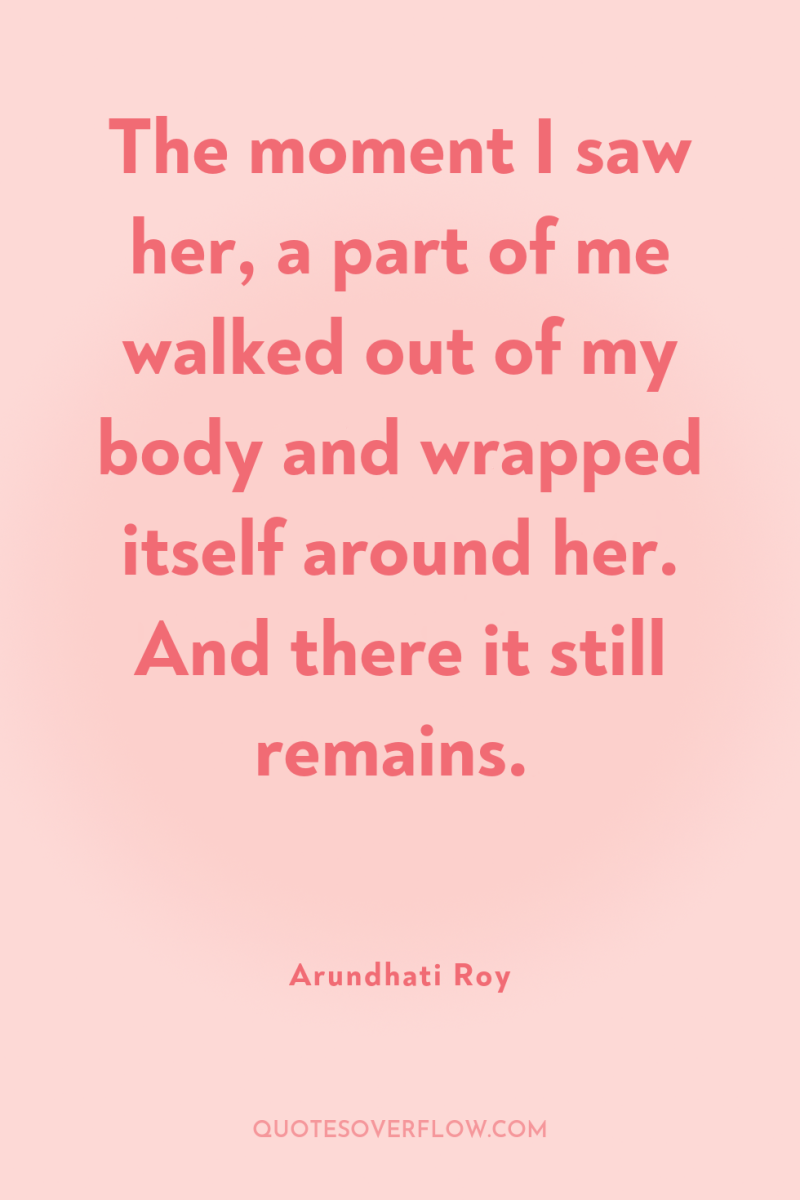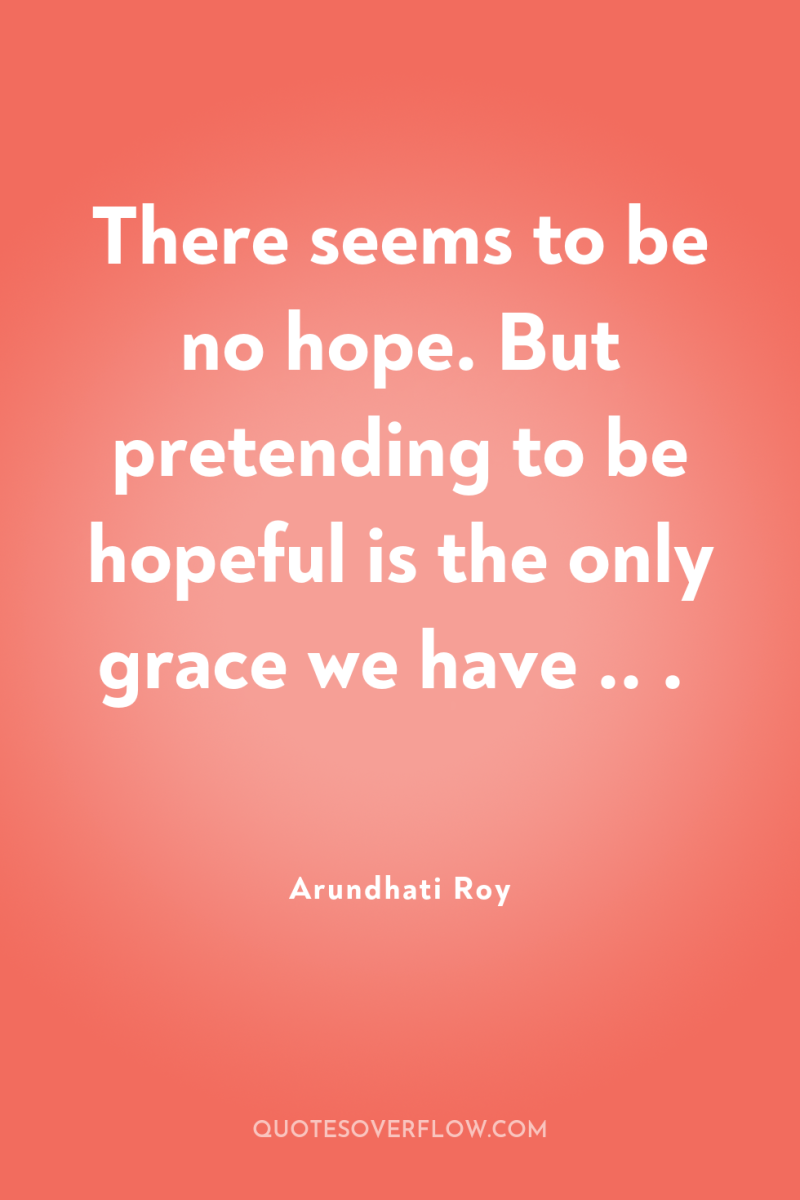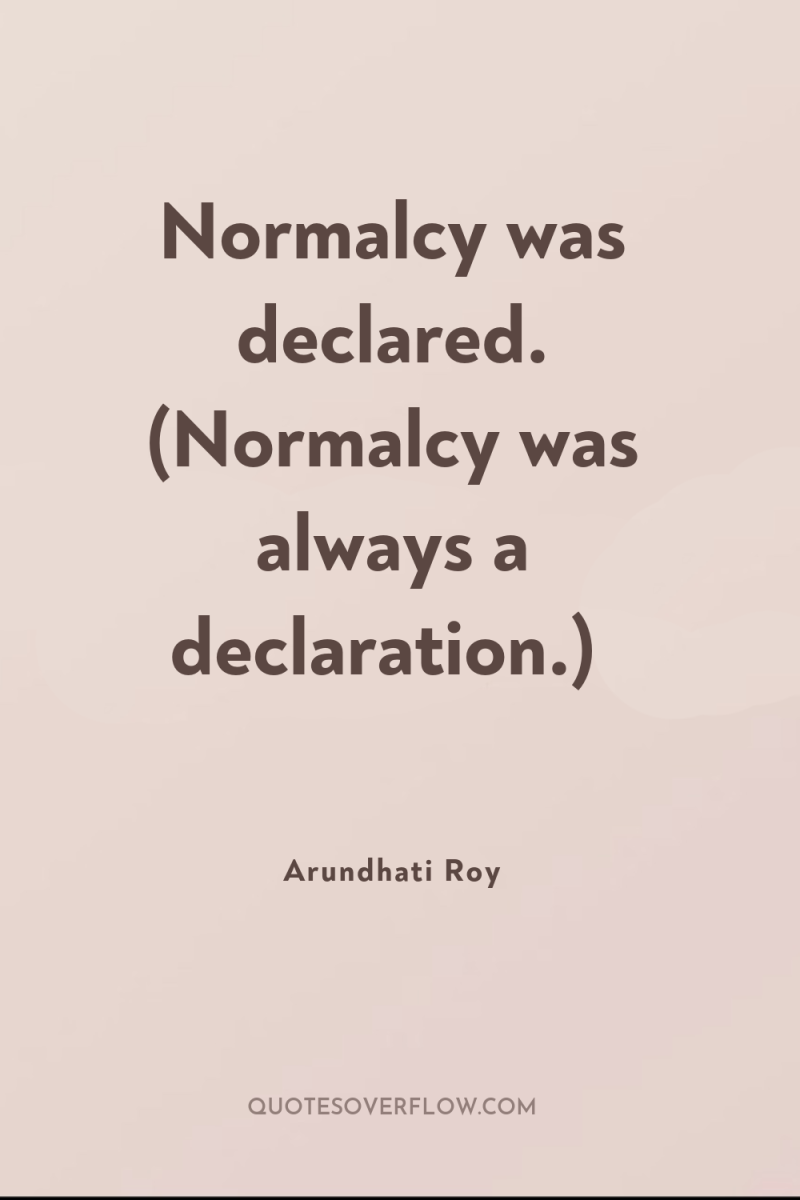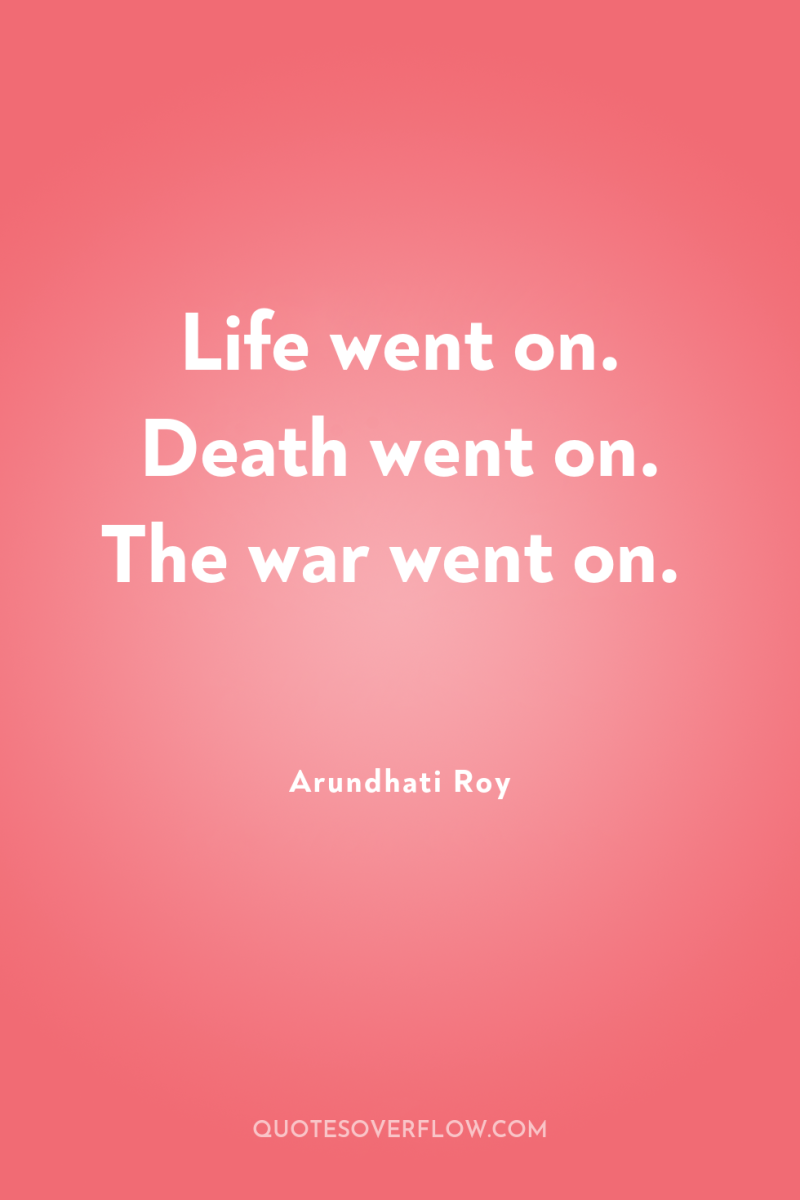
1
The moment I saw her, a part of me walked out of my body and wrapped itself around her. And there it still remains.Arundhati Roy
2
Something about Tilo’s new home reminded Musa of the story of Mumtaz Afzal Malik, the young taxi driver whom Amrik Singh had killed, whose body had been recovered from a field and delivered to his family with earth in his clenched fists and mustard ï¬â€šowers growing through his fingers. That story had always stayed with Musa — perhaps because of the way hope and grief were woven together in it, so tightly, so inextricably.Arundhati Roy

3
There seems to be no hope. But pretending to be hopeful is the only grace we have .. .Arundhati Roy

4
Normalcy was declared. (Normalcy was always a declaration.)Arundhati Roy

5
Life went on. Death went on. The war went on.Arundhati Roy
6
History would be a revelation of the future as much as it was a study of the past.Arundhati Roy
7
Enemies can't break your spirit, only friends can.Arundhati Roy
8
Who can know from the word goodbye what kind of parting is in store for us.Arundhati Roy
9
Even in the most uneventful of our lives, we are called upon to choose our battles...Arundhati Roy
10
Normality in our part of the world is a bit like a boiled egg: its humdrum surface conceals at its heart a yolk of egregious violence. It is our constant anxiety about that violence, our memory of its past labours and our dread of its future manifestations, that lays down the rules for how a people as complex and as diverse as we continue to coexist — continue to live together, tolerate each other and, from time to time, murder one another. As long as the centre holds, as long as the yolk doesn’t run, we’ll be fine. In moments of crisis it helps to take the long view. .Arundhati Roy
11
Trees raised their naked, mottled branches to the sky like mourners stilled in attitudes of grief.Arundhati Roy
12
Sitting next to Tilo, breathing next to her, he felt like an empty house whose locked windows and doors were creaking open a little, to air the ghosts trapped inside it.Arundhati Roy
13
Cow, goat, chicken, lamb .. . only slaves eat like this, ’ Musa said, heaping an impolite amount on to his plate. ‘Our stomachs are graveyards.Arundhati Roy
14
Socrates asked the key question: why should we be moral?Arundhati Roy
15
The story ï¬â€šared, then faded.Arundhati Roy
16
But Tilo had crept up on him, and become a kind of compulsion, an addiction almost. Addiction has its own mnemonics — skin, smell, the length of the loved one’s fingers. In Tilo’s case it was the slant of her eyes, the shape of her mouth, the almost Âinvisible scar that slightly altered the symmetry of her lips and made her look defiant even when she did not mean to, the way her nostrils flared, announcing her displeasure even before her eyes did. The way she held her shoulders. The way she sat on the pot stark naked and smoked cigarettes. So many years of marriage, the fact that she was not young any more — and did nothing to pretend otherwise — didn’t change the way he felt. Because it had to do with more than all that. It was the haughtiness (despite the question mark over her ‘stock’, as his mother had not hesitated to put it). It had to do with the way she lived, in the country of her own skin. A country that issued no visas and seemed to have no consulates. .Arundhati Roy
17
The frozen ï¬â€šowers never go away. They hang around somewhere all the time. I think we need to talk about vases. Did you hear the sound of the white ï¬â€šower?Arundhati Roy
18
N O T H I N GI would like to write one of those sophisticated stories in which even though nothing much happens there’s lots to write about. That can’t be done in Kashmir. It’s not sophisticated, what happens here. There’s too much blood for good literature. Q 1: Why is it not sophisticated? Q 2: What is the acceptable amount of blood for good literature?yArundhati Roy
19
In the last photograph of her, the bullet wound looked like a cheerful summer rose arranged just above her left ear. A few petals had fallen on her kaffan, the white shroud she was wrapped in before she was laid to rest.Arundhati Roy
20
She could hear her hair growing. It sounded like something crumbling. A burnt thing crumbling. Coal. Toast. Moths crisped on a light bulb. She remembered reading somewhere that even after people died, their hair and nails kept growing. Like starlight, travelling through the universe long after the stars themselves had died. Like cities. Fizzy, effervescent, simulating the illusion of life while the planet they had plundered died around them. .Arundhati Roy
21
She thought of the city at night, of cities at night. Discarded constellations of old stars, fallen from the sky, rearranged on Earth in patterns and pathways and towers. Invaded by weevils that have learned to walk upright.Arundhati Roy